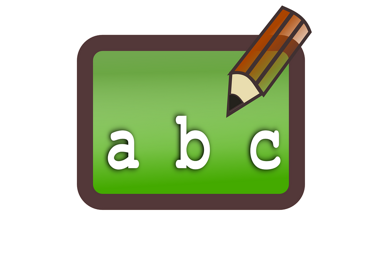Hallo

Welcome to Learn German. In this lesson, you'll learn some useful German phrases to use when introducing yourself and greeting others. A small conversation is included at the end of the lesson to help you learn the phrases introduced in this lesson and to help you become familiar with spoken German.
You'll also learn some tips on how to pronounce German and how to recognize some common German words.
German Pronunciation
The following table shows how to pronounce some of the trickier German consonants. Look at the German Alphabet reference to learn the entire German alphabet and how to pronounce the German language.
| J j | (yot) | Pronounced like y in yes. |
| Q q | (koo) | Always in the combination qu and pronounced like kv. |
| ß | (ess) | Pronounced like the s in sing. |
| V v | (fow) | Pronounced like the f in few. |
| W w | (vay) | Pronounced like English v. |
| Z z | (tset) | Pronounced like ts in cats. |
German Phrases
Here are some German phrases to use when introducing yourself and greeting others. Listen to the phrases to get a sense of how German is pronounced, then practice speaking them.
If you take the time to memorize the phrases in the German Phrases sections of this course, it will go a long way towards helping you speak and understand German.
 Hallo.
Hallo.
|
Hello. |
 Auf Wiedersehen.
Auf Wiedersehen.
|
Goodbye. |
 Tschüss!
Tschüss!
|
Bye! |
 Guten Morgen.
Guten Morgen.
|
Good morning. |
 Guten Abend.
Guten Abend.
|
Good evening. |
 Gute Nacht.
Gute Nacht.
|
Good night. |
 Wie heißen Sie?
Wie heißen Sie?
|
What is your name? |
 Ich heiße ___.
Ich heiße ___.
|
My name is ___. |
 Freut mich Sie kennen zu lernen.
Freut mich Sie kennen zu lernen. |
Nice to meet you. |
 Wie geht's?
Wie geht's?
|
How's it going? |
 Bis später.
Bis später.
|
See you later. |
 Vielen Dank.
Vielen Dank.
|
Thanks a lot. |
 Das ist großartig!
Das ist großartig!
|
That's great! |
 Keine Sorge!
Keine Sorge!
|
Don't worry! |
Cognates
Cognates are words that have a common origin. German and English share many cognates and recognizing these words will make learning German easier. Some of them are easy to recognize, while others have been obscured by changes in pronunciation in both German and English.
The meanings of the following words should be fairly easy to guess: komm, Gras, Sand, in, bring, Arm, Hand, Finger, und, hier. Notice that German nouns are always capitalized.
Sound Changes
The letter t in German is often d in English (Brot -> bread, gut -> good, trink -> drink).
The letter g in German is often y or i in English (Tag -> day, regen -> rain).
The letter b in German is often f or v in English (halb -> half, sieben -> seven, Silber -> silver).
The letter d in German is often th in English (denk -> think, danke -> thanks, Bad -> bath).
The letters s, ts, and ß are often t in English (Wasser -> water, was -> what, Netz -> net, daß -> that).
The letters f and pf in German are often p in English (offen -> open, Pfeffer -> pepper, Apfel -> apple).
Advertisement
Flashcards
This section contains flashcards to help you learn the German words and phrases introduced in this lesson.
Read German
Read and listen to the following conversation between Elias and Hannah.
German
Elias: Hallo! Ich heiße Elias. Wie heißen Sie?
Hannah: Ich heiße Hannah. Freut mich Sie kennen zu lernen.
Elias: Auch schön Sie kennenzulernen. Wohnen Sie hier in der Gegend?
Hannah: Nein, ich bin im Urlaub. Ich wohne in Bremen.
Elias: Wie lange sind Sie hier?
Hannah: Noch eine Woche.
Elias: Genießen Sie Ihren Urlaub.
Hannah: Vielen Dank. Tschüss!
English
Elias: Hi! My name is Elias. What's your name?
Hannah: My name is Hannah. Nice to meet you.
Elias: Nice to meet you too. Do you live around here?
Hannah: No, I am on vacation. I live in Bremen.
Elias: How long are you here for?
Hannah: One more week.
Elias: Enjoy your vacation.
Hannah: Thanks. bye!